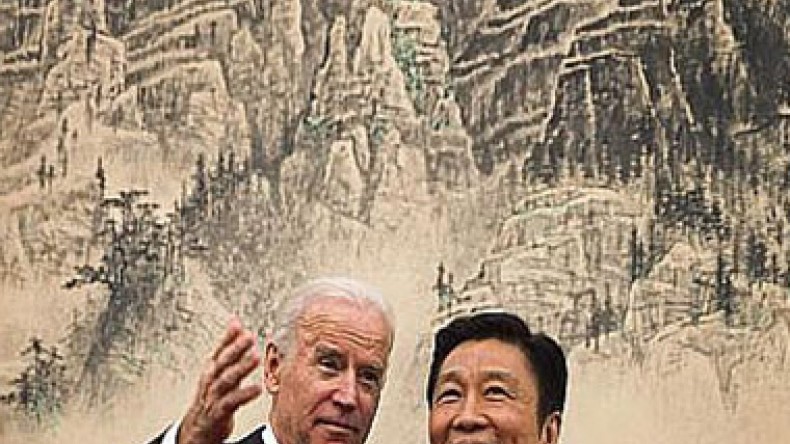
Washington’s fear of Beijing is to Iran’s benefit
Excerpts of Iranian Diplomacy’s interview with Dr. Mohsen Shariati Nia, an expert on Chinese affairs
- Many are concerned that China’s show of power in the Pacific Ocean region may lead to another war. How would you assess China’s military and defensive power today compared to the past? Why does China pursue this path?
- The growth of China’s power has had several stages, the first of which started in the 1970s and the beginning of the economic reforms. The stage of gaining military power began to accelerate from 2000 and right now is in a position which has concentrated China’s military strategy on being transformed into a power in the sea. There is this possibility in the sea because Japan and the US and other countries which have military forces in that area and are traditionally the superior sea powers in that region might create some problems. A historical study of this issue shows that this move made by China is in line with the path of transformation into a superpower in the sea. This objective has been pursued by China since 2006. Some confrontation or explosion points exist along this path which are the regions of air defense or, in general, territorial disputes between China and its neighbors.
- Pentagon officials stated on Wednesday that from November 23rd, China has attempted to create a new air defense area in the South China Sea. What is the reason behind the establishment of such an area? What is this defense area?
- There are several analyses in this regard: The Chinese consider the time to their own benefit and that taking such measures would not be faced with serious reactions from the other side because neither the US nor Japan is in a position to create new challenges. This is the American-Japanese version and that is why they believe that they must react to China’s measures. But the Chinese believe that the establishment of an air defense area is a norm in the international scene because the US has taken such measures since the 1940s and other countries have also done the same. Thus, taking such measures to safeguard the territorial integrity of a country is normal.
These are two different assessments but it seems that the Chinese feel that under the present circumstances the pursuance of the country’s rights is possible and other powers cannot damage this process and will gradually accept it.
- Why has Martin Dempsey, Chairman of the US Joint Chiefs of Staff, stated that the establishment of an air defense are by China would create instability. Why does the US protest against this measure?
- The US has maintained the security arrangements and the balance of power after WWII and this would naturally be disrupted by China’s measures. Therefore, insecurity in the international scene will be seen when the balance of power is disrupted or challenged by the emergence of a new power. Thus, the insecurity which is mentioned by the US is the change in the arrangements which they have created in this region following WWII and they are concerned that China would disrupt these equations. The Chinese intend to disrupt this balance of power in this region.
- Chinese State Councilor Yang Jiechi has visited Iran on the invitation of Ali Shamkhani, the Secretary of the High Council of National Security, heading a high-ranking political and economic delegation. How would you assess relations between Iran and China at the present time? What role has China played in the recent nuclear negotiations and to what extent has China cooperated with the other parties in imposing sanctions against Iran?
- Iran must pay attention to the balance of power in the regional scene and in East Asia in its relations with China. Under the present circumstances, China’s security atmosphere in East Asia has been damaged and many of its neighbors have problems with this country. The security situation of the Islamic Republic of Iran will be better during the next months due to the prudent policies which have been pursued and Iran is advancing towards stability with its neighbors and the big powers. Therefore, it can be said that the trends are totally opposite in Iran and China. This means that Iran’s security atmosphere is moving towards stability and China’s security atmosphere towards tension. Thus, Iran is in a better position for bargaining and must use this opportunity. In the past when the sanctions against Iran were intensified, in the past eight years and especially from 2010 to 2013, the Chinese used this opportunity based on the logic of their policy of power and national interests. Iran must now, and through the improvement of its international relations, better use China’s capabilities and possibilities or must at least prevent its interests from being overshadowed by China’s policies.
In the recent negotiations, China’s attitude was positive and helped in the continuation of their past policy in resolving this issue. In the end, it must be said that the more the US is concentrated and engaged in East Asia, the more stabilized Iran’s security would be. Therefore, Iran must pay attention to this point in its national security and foreign policies that if the US concentration in the Middle East is reduced, Iran’s stability will grow and Tehran’s strategic power in the region will increase as well. Thus, this trend must be helped so that the US’ view would be more towards Asia instead of the Middle East and Iran must not do anything to return the US view towards the Middle East.
Newsfeed
Videos






























